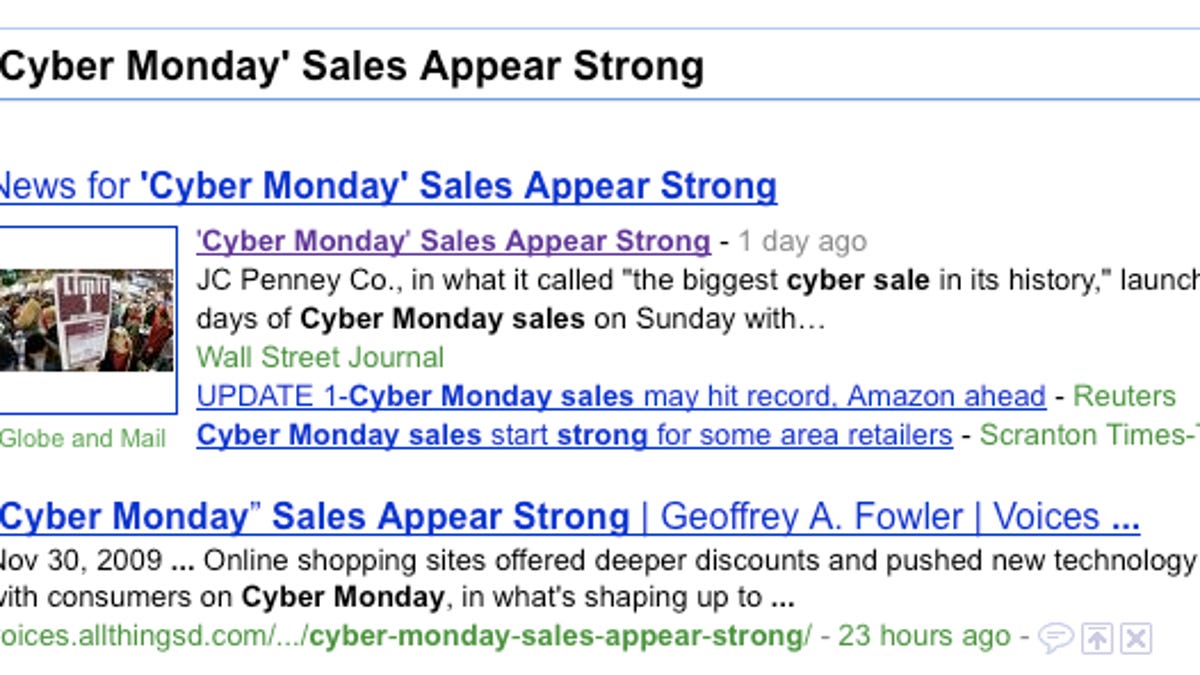In nod to media, Google News policy limited
Google's "First Click Free" policy allowed Google News and search users to discover news articles behind paywalls, but it was easy to abuse. Now, there are limits.

As the journalism industry gathers once again to wring its hands about the future, Google has thrown it a bone with new limitations on its "First Click Free" policy for news stories shown on Google News.
Companies that operate subscription-based Web sites--such as The Wall Street Journal--don't want to expose the full text of their articles to Google. But despite what WSJ owner Rupert Murdoch says, most of them also want their articles and sites discoverable through Google and Google News. As a compromise, Google has allowed those publishers to participate in what it calls a "First Click Free" program, where articles accessed through Google News links can be seen in their entirety, but if the user attempts to click anywhere else on that story page, they are directed to a sign-up page.
The problem is that Web users quickly figured out that you can access almost any Wall Street Journal article for free simply by cutting and pasting the headline into Google News, which generates a "free" link that isn't available if a publisher such as CNET links to a Wall Street Journal article. "While we're happy to see that a number of publishers are already using First Click Free, we've found that some who might try it are worried about people abusing the spirit of First Click Free to access almost all of their content," wrote John Mueller, Webmaster trends analyst for Google, in a blog post.
As a result, Google is now putting limits on the First Click Free usage. Web publishers can now decide to limit use of the First Click Free rule to five times per person per day through both Google News and regular Google search results. It's not clear whether readers could get around this issue by clearing cookies from their browser or enabling private browsing, but a Google representative said it will be up to Web publishers to decide how they want to track visitors through some combination of cookies or IP addresses.
Google is one of many companies and organizations participating in a day-long discussion about the future of journalism at the Federal Trade Commission in Washington. The topic has pitted Google against the publishing industry all year, with Google insisting it's a friend of journalism by sending traffic toward media companies, and media companies accusing Google of siphoning their potential traffic by showing headlines and snippets on Google News.